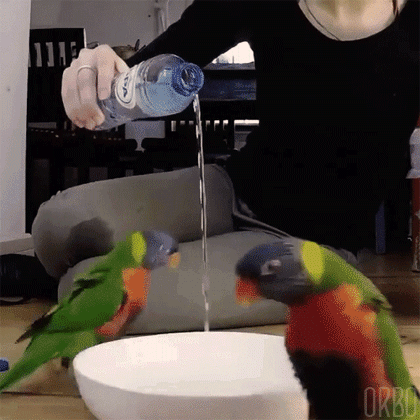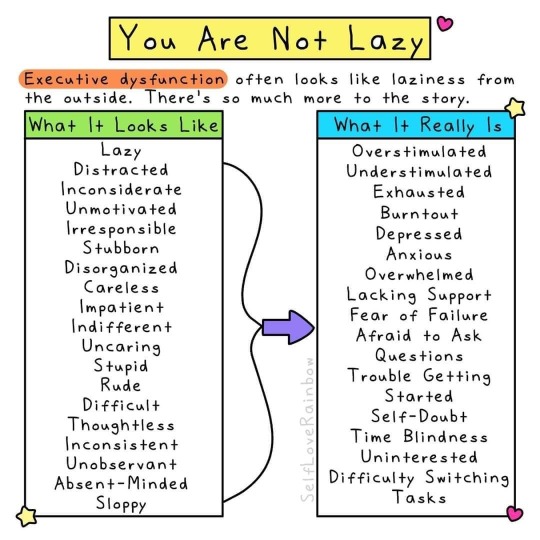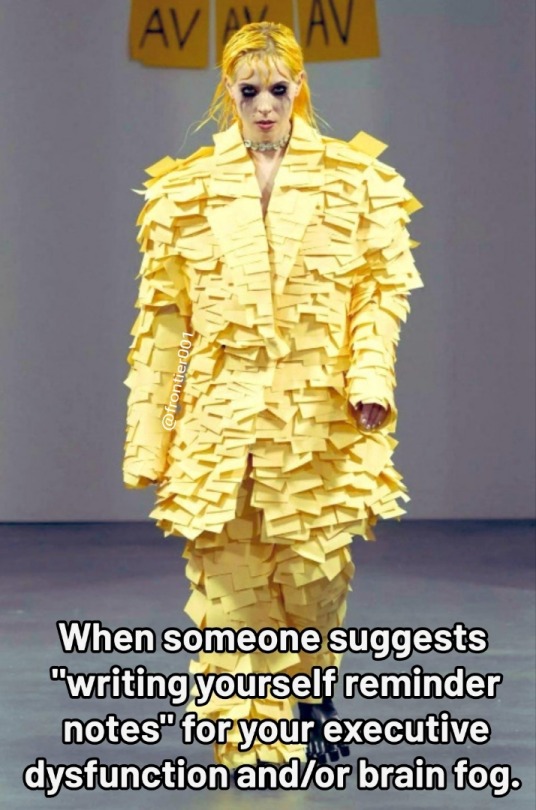#the executive function be dysfunctional
Explore tagged Tumblr posts
Text

girl how do u cope with being human
#cal rambles#im like so so sad for no reason all the time#when my mental illness actually causes problems instead of being just a quirky part of me :0#JWBEGWIAGSGAHAHAHHA#this is to say. the depression be depressioning#the executive function be dysfunctional#to quote sparrow im projectingggfg im projecting#stuffing all my bad feelings into normal oak and then throwinf him at his friends and family to comfort him bc 👍 that'll fix me#sigh. sighhhh. idk things have been bad for the past few months idk what to do to fix it#i think being a cat. or a seal. woulf fix me#i just wanna be a silly little guy whos cute and eats fish all day. is that too much to ask
5 notes
·
View notes
Text
yay water

time to drink water woo hoo yay
#drink water#hydration#stay hydrated#water reminder#self care#self care tips#autistic self care#adhd self care#audhd struggles#audhd problems#audhd creature#adhd autistic#poor interoception#interoception#adhd help#autistic community#adhd community#prompting#functionality#executive dysfunction#adhd experience#autistic experiences#instrumental activities of daily living#activities of daily living#adls#iadls#did osdd#neurodiversity#time blindness#autistic borderline
33K notes
·
View notes
Text
Workbooks to improve executive functioning
Since the post I made last night about improving executive functioning was so popular, I figured I should pull these out of my comments and give them their own post, in case it's helpful for people.
I have worked with the publishers of all of the books linked below and can vouch for their psychology books. The publisher of most of them, New Harbinger, is an extremely credible evidence-based psychology publisher.
Obvious disclaimer that everyone's brain is different and what works for someone else may not work for you.
Is there evidence that executive functioning can be improved? Yes. This book appears to be a very thorough overview of the field, and contains both advocates and detractors of cognitive training, for a balanced perspective. From the table of contents, I would really recommend jumping straight to Part 3: Developmental Perspectives for executive functioning (EF) writ large.
Certain therapy modalities are specifically designed for skill-building in areas like impulsivity, decision-making, emotional regulation, and cognitive flexibility, all of which are EF skills or very dependent on EF skills. Dialectical Behavior Therapy (DBT) is probably the best field to look at for these - skill-building in those areas is its core goal.
Some DBT workbooks:
The Dialectical Behavior Therapy Skills Workbook: Practical DBT Exercises for Learning Mindfulness, Interpersonal Effectiveness, Emotion Regulation, and Distress Tolerance
The Dialectical Behavior Therapy Skills Workbook for Teens
There are also a lot of workbooks for ADHD that are sometimes more broad but also can help with executive functioning:
The Adult ADHD and Anxiety Workbook: Cognitive Behavioral Therapy Skills to Manage Stress, Find Focus, and Reclaim Your Life
The CBT Workbook for Adult ADHD: Evidence-Based Exercises to Improve Your Focus, Productivity, and Wellbeing
The Neurodivergence Skills Workbook for Autism and ADHD
General executive functioning workbooks:
The Executive Functioning Workbook for Teens
Executive Functioning Workbook for Adults: Exercises to Help You Get Organized, Stay Focused, and Achieve Your Goals
Hope these are helpful to someone!!
#executive dysfunction#executive function#adhd#autism#actually autistic#neurodivergent#advice#adulting
6K notes
·
View notes
Text
Okay so. So decomposing executive function problems, and the things people grapple with, is a thing that I've been chewing over lately. We talk a lot on Tumblr about executive dysfunction but that's a pretty broad category of brain no worky good, and I'm honestly really curious: for other folks who struggle with executive dysfunction, which specific function causes the most problems for you day to day?
If you have more than one thing you struggle with, pick the one that causes you the most problems day to day.
#Executive function#Executive dysfunction#actually autistic#actually adhd#adhd#day job#working on a grant#Ptsd#Cptsd#ocd#dysfunction junction
2K notes
·
View notes
Text
i don't know who needs to hear this but do not listen to the voice in your head telling you you don't need to prepare tomorrow's breakfast or pick out tomorrow's outfit tonight. don't listen when it tells you you'll have time to do that tomorrow morning. that is the voice of the devil talking. do not listen.
#your future self will thank you. trust me#advice#life advice#procrastination#adhd#executive dysfunction#autism#actuallyautistic#by the devil i mean executive dysfunction#can anybody tell i'm not a morning person#salty tries to function with both adhd and autism.post
783 notes
·
View notes
Text

#autism#autistic#actually autistic#affirmations#autism memes#autism affirmation#adhd#audhd#adhd memes#executive dysfunction#executive function
1K notes
·
View notes
Text

You Are Not Lazy
Executive dysfunction often looks like laziness from the outside. There's so much more to the story.
What It Looks Like: What It Really Is:
Lazy — Overstimulated
Distracted — Understimulated
Inconsiderate — Exhausted
Unmotivated. — Burntout
Irresponsible — Depressed
Stubborn — Anxious
Disorganized — Overwhelmed
Careless — Lacking Support
Impatient — Fear of Failure
Indifferent — Afraid to Ask Questions
Uncaring — Questions
Stupid — Trouble Getting Started
Rude — Uninterested
Thoughtless — Time Blindness
Inconsistent — Time Blindness
Unobservant — Uninterested
Absent Minded — Difficulty Switching Tasks
Self Love Rainbow
#neurodivergence#neurodiversity#actually neurodivergent#executive functioning#executive dysfunction#what it really is#feel free to share and reblog#Self Love Rainbow (Facebook)
2K notes
·
View notes
Text
So... what exactly are executive functioning supports...?
Planners, checklists, and reminders are definitely executive function supports, but they aren't the only things that are available. ...so, I've made a list of some examples. A thread (🧵)
Executive functioning includes so much, so executive function supports can be SO MANY things. Executive functions include decision making, working memory, task initiation, planning, prioritizing, many forms of self-regulation, and more.
So let's talk in broad categories
Category 1: Decisionmaking
Avoiding a decision altogether,
Choosing randomly,
Reducing the number of options to decide between,
Always doing the same decision (such as having a uniform for yourself),
Outsourcing decisions,
Having outside structure/expectations
Category 2: Working memory
Keeping things visible,
Reminders,
Collaborators who gently remind you of things,
Writing it down (i.e., notebooks, post-its, to-do lists, etc.),
External structure such as lunch hours,
Understanding why and how working memory fails
Category 3: Information processing
Avoiding weak processing areas (eg. reading for dyslexics like me)
Have information in multiple forms,
Make information processing context relevant,
Reduce incoming information or competing demands
Category 4: Task Management
Body doubling,
Transition time,
To-do lists,
Breaking tasks down (including people to help with that),
External structure for identify the next step,
clear, explicit instructions,
Schedules, planners, itineraries.
Category 5: Organization
Mind maps,
Labels,
Notetaking templates,
Physical organizers,
Organizing methods (Kondo, Only 4 Things, etc.),
House cleaners, professional organizer, etc.
Clear bins,
An ability to toggle visibility
Category 6: Cognitive Flexibility
Transition time,
Pre-change warnings,
External support for identifying and reminding the new direction,
Context-based exemplars of similar change,
Visual schedules,
Reminders of when structure will start again
I've listed a lot of things here, but there are just so, so, so many more options.
Executive function supports can be ways that we think or approach situations (internal) or structures imposed on us by others (external). They can be physical tools that we can touch and interact with (tangible) or completely abstract ideas or approaches (intangible)
The big takeaways are that executive function supports can be any tool, structure, or communication that supports any of our executive functions.
Executive functioning struggles are core to the ADHD and autistic experiences (and secondary to other ND conditions). This means executive functioning takes a lot of energy for ADHD and/or autistic people, and the more support we have the more energy we can use for other things
So, yeah, planners, checklists, and reminders are definitely executive function supports, but so is a highschool bell schedule, hobby-related groups, professional services, and colleagues (consensually) harassing you to remember to send that email.
There are a lot of options!
#adhd#executive function#executive functioning#coping#coping strategies#autism#task initiation#decision paralysis#actually autistic#neurodivergent#mental health#executive dysfunction
2K notes
·
View notes
Text
Only being interested in career paths that require lots of higher education while also having really bad executive dysfunction due to AuDHD is such a weird combination.
Like, i want to learn everything and I'm so interested in everything, but i can't actually sit and study anything.
#autism#adhd#audhd#executive dysfunction#college#university#higher education#actually neurodivergent#neurodivergent#adult autism#adult adhd#i dont know what to do anymore#autistic#asd#attention deficit hyperactivity disorder#executive function
98 notes
·
View notes
Text

#spooniestrong#spoonie#disability#chronic illness#ableism#executive dysfunction#executive function#brain fog#post it art#post it note#post it notes
337 notes
·
View notes
Text
5 strategies that have improved my executive functioning in 2023
1. Preparing tasks in advance
This tip has been one of the most useful things for me to be able to actually get the things I want to do done without getting stuck in the process. I am very prone to difficulties with task initiation and task switching. Basically I've found that if I check what activities are upcoming for that day in my calendar (but you can use any task that you want to do sometime that day) then I set the task up in advance it's a lot easier to actually do the task.
So if my goal is to stream after dinner then I turn my pc on and have my setup ready to go before dinner. If I want to do a Pilates workout I set up my mat an hour before I actually want to do the workout. If I want to go to the gym I get into gym clothes at the start of the day so I don't have to change later.
I basically eliminate all the difficult prep work and then I find doing the task so much easier when I get to it.
2. Task switching when stuck
A lot of neurodivergent people have issues with getting 'stuck' or 'frozen', myself included. Whether it's autistic inertia or decision paralysis or something else it's very common to find yourself unable to do anything at all. You'll know that even if you put your phone away or stop what you're doing you'll just continue to sit there doing nothing.
The solution to this for me has consistently been to switch goal. I want to get up and shower but can't? I'll find that I can pull my laptop out and get some work done instead (and then shower after lunch later in the day). I am stuck when I want to stream? I find I can do my skincare instead (and I ended up streaming the next day).
Yes this means you don't get your original goal done when you wanted but you get something done, and something is better than nothing.
3. Task chaining
I've found that task chaining is the easiest way for me to get multiple tasks done. It's basically building upon your success. Take the example from my task switching section where I couldn't get myself to start streaming so I decided to do my skincare instead. While doing skincare I remembered I wanted to ask my brother about a particular product. So suddenly I'm capable of going to ask him about it. I couldn't even get out of bed before but now I have the motivation to move (I keep my skincare next to my bed so I didn't have to get up prior to this). After talking to him I decide I can go downstairs and make tea (something I originally wanted to do before streaming but was too stuck to do). While downstairs my mother tells me that she has a pile of laundry for me. I decide to take it back upstairs and put it away immediately. While doing so I figure I may as well sort all the laundry that's piled up on my floor as well.
I've gone from not doing anything to completing 4 separate tasks. If I wanted to get up and put the clothes on my floor away originally I'd never have been able to do it. I built on my successfully completed tasks and chained them together. Of course you should still remember to rest after chaining a number of tasks together.
4. Prioritise harder tasks earlier
I get all my energy at the start of the day and feel quite tired by the end of the day. This is how most people feel due to how our circadian rhythms function. Because of this I have found it's a lot easier to get difficult tasks done in the morning.
So now instead of trying to clean my room or go to the gym at 5pm I'll do it at 9am. I'll save 5pm for my easy tasks, things like studying Korean, meditating, studying geography, and coding. Take some time to figure out which tasks you find easy and which you find hard. If you consistently find yourself unable to do a task that's a hint that it's difficult for you. Vice versa if you're consistently capable of a task it might be a sign it's an easier one for you.
5. Using an AI scheduler
I saved this one for last, not because it's ineffective, it's actually made a huge difference in my life. But it does cost money to take full advantage of this so I put it down the bottom. Still there's a lot to be said for using an AI scheduler. I hate choosing what to do and have always preferred to be told what tasks I should do each day. It also takes a huge amount of mental energy to decide what tasks I should do when each week and organise them in advance.
Enter Reclaim, the AI scheduler of my dreams (there are lots of other ones on the market too like Motion! Take a look around and see if you can find one you like but unfortunately they all seem paid). Reclaim does have a free version but for me their paid version is necessary to achieve my goals.
I set up all my tasks and habits in Reclaim, I can customise how often I want to do things, how long they should take, and what hours I have free. Then I just check my calendar each day and see what tasks I'm meant to do. If I end up taking more time than expected I just hit the 'reschedule' button on a task and it's automatically slotted in somewhere else that week. This has definitely made one of the biggest changes to my quality of life I could probably make a whole separate post about using Reclaim.
That's all the tips that have worked for me this year so far, maybe some of them might help you!
#actually autistic#actually neurodivergent#executive dysfunction#adhd#autism#executive function#long
548 notes
·
View notes
Text
does anyone else feel like they become neurotypical while they're in the shower
#I know it's something to do with like the white noise/sensory input helping ur brain function properly or somethin#but I swear my ADHD just fully goes away for as long as I'm in the shower#and then as soon as I step out it shloops back into my brain#it's very weird#a lot of the time I step into the shower and I feel like my executive dysfunction fully goes away like I could do anything I want#and I'll start makin a to do list in my head like 'okay as soon as I'm done showering I gotta do this and this and this'#and then I step out and I'm like lol :P forgor#lyla's talking again#ADHD#autism
170 notes
·
View notes
Text


Executive Function is elusive, preferring to prowl underground in the subconscious. However, they can be coaxed above to the conscious plains with their favorite treat: the fruit pods of a moringa oliefera. They don't taste the best, but just a couple of them are enough to finally let them permit you to ride them.


Their mouth is on the top of their head by the way.
#selkra scribbles#emotionsonas#OC EF#inner world#paracosm#paracosmonaut#immersive daydream#immersive daydreaming#inside out fandom#creature design#executive dysfunction#executive function#inside out oc
62 notes
·
View notes
Text
ADHD task completing tip
okay so growing up i was usually told "do the hard thing first and then you get to do the fun thing." and generally that's reasonable.... if you've got decent executive function. but for those of us who don't, this is a thing i've been using to get through school/work/general human functioning. It's still using hard thing/fun thing, but it interweaves them WAY more
first step: find something that sparks some dopamine quickly. i usually use short-timer online chess or mobile games. if you pick scrolling social media or something that doesn't have a clear endpoint, make sure you have an easy way to set a timer. On apple phones, there's a timer setting that says "stop playing" instead of playing a sound. I love this because it'll take you to your lock screen so you can't accidentally dismiss the timer and keep going. Do NOT make this movement or taking care of bodily functions; eating/hydrating/going to the bathroom/moving around are things you can and should do when your body tells you. take care of ya self
second step: look at your task and break it up TINY. If you have to write a paper, don't break it up by paragraph. break it up into something like fifty words. Cleaning a room: ten items put away. Close reading: 1 page. Really you want something that if your executive functioning was playing nice you could do in 1-4 minutes. I recommend NOT saying "work for x minutes" however, since that's a really quick way to sit there watching the clock. You wanna tie progress to completion not time spent.
third step: estimate how many levels/games/etc of your dopamine source it takes to last 1-5 minutes. Ideally you will already have a sense of this. I'd advise not "testing it out right now" and procrastinating that way.
fourth step: get to work. every time you complete a tiny task, you can do one unit of the dopamine thing. If you get some momentum, you can stack rewards, so if your tiny task was 50 words for one mobile game level, 150 words straight would be three levels. If you are having a really hard time getting going, you can start with 1-3 units of your dopamine thing to kinda jumpstart the process, just decide how many you're doing first so you don't lose hours to it.
note that this ONLY WORKS if you don't ignore your timer/level cutoff. The idea is to get dopamine levels up and use that to power through the next tiny task.
#tips and tricks#adhd#actually adhd#executive function#executive dysfunction#dopamine#motivation#adulting#school#work#find solutions that work with your brain#rather than struggle through solutions that don't#the only bad strategy is the one that makes the task harder#accommodations#self accommodation
99 notes
·
View notes
Text
It really is shitty that getting a chronic illness makes your mental shit worse as well, like not only do I have so deal with all my physical symptoms now but it's also made my adhd so much worse, especially the memory issues and executive dysfunction, sometimes my executive function is so bad that i can't even get myself to speak, which is honestly such bullshit, and my memory has always been bad but after becoming chronically ill it's gotten exponentially worse, like forgetting shit immediately after being told and misplacing stuff way more and just like every memory issue i've had but 10x more frequent
#chronic illness#chronically ill#disabled#disability#adhd#executive dysfunction#memory issues#not having the executive function to speak sounds so fake#but it's not#and it's exactly the same as other times where once i actually start the thing (talking in this case) it's not hard at all#it's still so stupid tho#like it's just talking#wtf
32 notes
·
View notes
Note
Could you please explain what motor initiation is in the context of executive dysfunction? I wasn't sure, so I tried googling it, but couldn't make heads or tails of the academic papers that came up.
So in the context of what I'm talking about, I am describing the point at which motivation— "wanting" — turns into physical movement to make the thing happen. Motor initiation is the shorthand I'm internally using; you'll also sometimes find this described as initiation of self-paced movement. It's commonly discussed in terms of executive dysfunction by neurodivergent online communities and it is a real thing, but it's not super well studied.
Part of the trick, I think, is that disentangling motivation from behavior—from moving your body in ways that you've learned are connected with maybe getting what you want—is very difficult. In fact, a lot of proxies for measuring the strength of motivation involve actually measuring behaviors, like counting how many times a rat is willing to press a lever to get what it wants! So I'm here discussing the phenomenon of wanting to perform a behavior associated with something you want and finding it difficult to actually physically start doing that thing.
It's possible there's another research community looking at this concept with another term. If you know of one, please tell me, I would love to read more!
ETA: @questioningdragons notes "task initiation" which is probably a better phrase to use; thank you!
111 notes
·
View notes